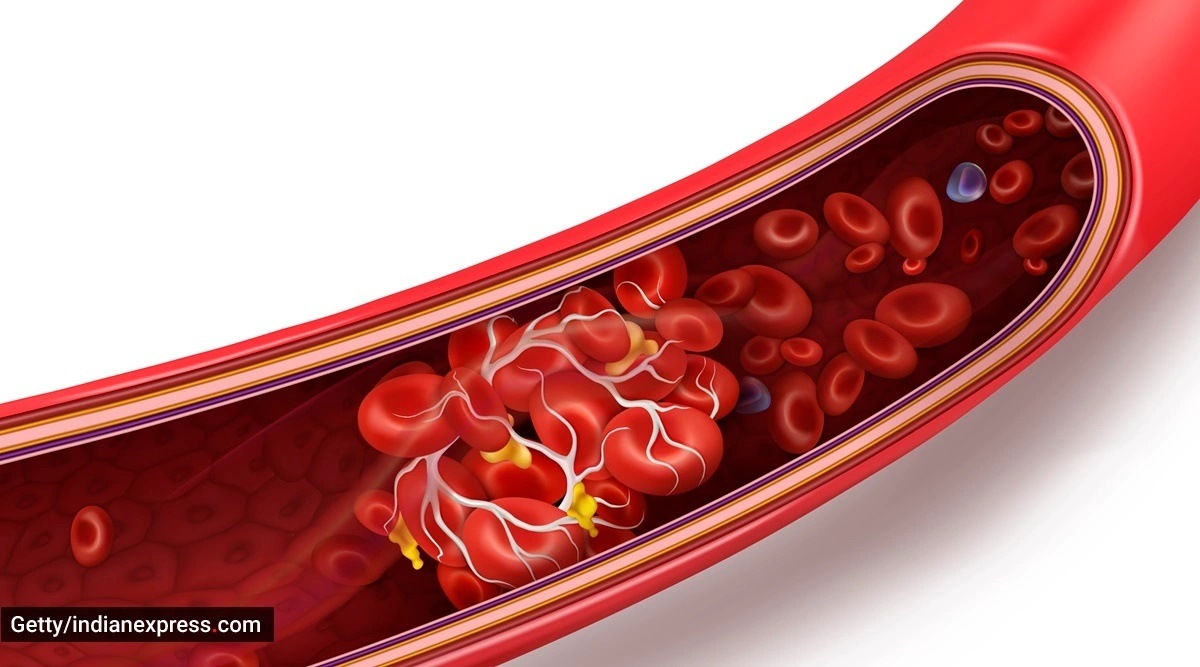📣 For more lifestyle news, click here to join our WhatsApp Channel and also follow us on Instagram
How do lipids determine ageing?
Lipidomics may also help in developing interventions to improve metabolic health, reduce inflammation, delay ageing and prolong lifespan
 How do lipids impact ageing? (Source: Getty Images/Thinkstock)
How do lipids impact ageing? (Source: Getty Images/Thinkstock) Lipids or the fatty compounds in the body such as cholesterol and triglycerides can be a marker of your health, disease, and ageing, a new study indicates. According to the study published in the journal Nature Metabolism, “dynamic changes in the plasma lipidome during respiratory viral infection, insulin resistance, and ageing“, indicated that lipids may have roles in immune homoeostasis and inflammation regulation”. In simple words, lipids can impact metabolic activities in the body which can also affect the ageing process.
The study featured more than 800 lipid species, many of which were associated with health-to-disease transitions in diabetes, ageing, and inflammation, as well as cytokine–lipidome networks.
The study did a comprehensive longitudinal lipidomic profiling and analysed more than 1,500 plasma samples from 112 participants which were followed for up to nine years (average 3.2 years) “to define the distinct physiological roles of complex lipid subclasses, including large and small triacylglycerols, ester- and ether-linked phosphatidylethanolamines, lysophosphatidylcholines, lysophosphatidylethanolamines, cholesterol esters, and ceramides”.
“Individuals with insulin resistance exhibit disturbed immune homoeostasis, altered associations between lipids and clinical markers, and accelerated changes in specific lipid subclasses during ageing. Our dataset based on longitudinal deep lipidome profiling offers insights into personalised ageing, metabolic health, and inflammation, potentially guiding future monitoring and intervention strategies,” the study noted.
 Inflammation is often associated with lipids (Source: Getty Images/Thinkstock)
Inflammation is often associated with lipids (Source: Getty Images/Thinkstock)
What are lipids?
Lipidomics research studies the structure and function of the complete set of lipids (the lipidome) in a given cell or organism as well as their interactions with other cellular components, said Dr Sudhir Kumar, neurologist, Apollo Hospitals, Hyderabad.
Dr Kumar listed the main conditions and situations where lipidome analysis in humans can be of help:
1. Insulin resistance and insulin sensitivity
2. Diabetes mellitus
3. Dyslipidemia
4. Obesity
5. Inflammatory conditions
6. Acute viral infection, such as a person’s response to respiratory system infections
7. Post-vaccination response
8. Ageing, including gender differences
So, lipids are essential components of cell membranes. “Changes in membrane lipid composition can affect cell integrity and function, potentially leading to cellular dysfunction associated with ageing. Certain types of fatty acids, can contribute to chronic inflammation when present in excess. Chronic inflammation is a known factor in ageing-related diseases,” said Dr Santosh Pandey, naturopath and acupuncturist, Rejua Energy Centre, Mumbai.
Lipids are involved in the production of various hormones, including sex hormones. “Hormonal changes can influence the ageing process, including menopause in women and declining testosterone levels in men,” said Dr Pandey.
Lipids play a role in maintaining the skin’s barrier function. “Age-related changes in skin lipids can lead to dryness and reduced elasticity, contributing to the appearance of ageing,” said Dr Pandey.
Levels of most lipid subclasses increase with ageing, most prominently ceramides (LCER, HCER, DCER), sphingomyelins, lysophosphatidylcholines and cholesterol esters, Dr Kumar stressed. “Omega 3 fatty acids deplete with ageing. In particular, the levels of docosahexaenoic acid, TAG, and eicosapentaenoic acid decreases with ageing. Decreased levels of linoleic acid have been reported in aged skin; the data shows that this is also a significant ageing biomarker in blood plasma,” said Dr Kumar.
Therefore, many lipid subclasses are associated with and potentially have a role in clinical conditions or may serve as biomarkers to stratify health states. “Lipidomics may also help in developing interventions to improve metabolic health, reduce inflammation, delay ageing and prolong the lifespan,” said Dr Kumar.
So, what can help?
Maintaining a balanced diet, managing inflammation, and adopting a healthy lifestyle can help alleviate some of the negative effects of lipids on ageing, said Dr Pandey.
📣 For more lifestyle news, follow us on Instagram | Twitter | Facebook and don’t miss out on the latest updates!
📣 For more lifestyle news, click here to join our WhatsApp Channel and also follow us on Instagram
- 01
- 02
- 03
- 04
- 05



























